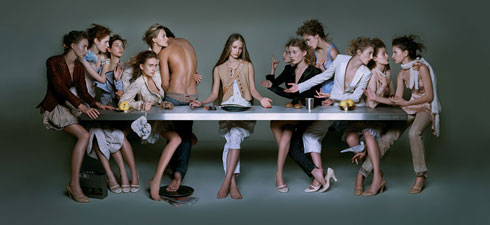Artists have been convicted of blasphemy in several European countries. Ireland has just passed an anti-blasphemy law, even as France staunchly defends her secular society. The European Union is far more divided over freedom of speech than it would let on to the outside world. In the hullabaloo after the Mohammad caricatures were published in the Jyllands-Posten four years ago, one voice was missing: that of a united front of European leaders defending freedom of speech.
A mosaic of conflicting views
Instead, we were treated to a string of even-handed statements deploring the umbrage taken at the cartoons and stressing in the same breath that a free and independent press is “one of the fundamental principles of our Europe”. At the end of the day, the European Union came to the albeit vague consensus that running the cartoons was clearly legal but imprudent. Politically speaking, it would probably be even more imprudent to have a good look at the various European legislation on freedom of speech that form a mosaic of conflicting views.
Last year, Ireland passed a law under which blasphemers who deliberately shock a religious community can be fined €25,000. Atheists and moderate believers were up in arms at what they likened to a medieval edict. And some wondered about the timing of the law. The Irish Catholic’s editor-in-chief explained it was probably because another “cartoon scandal” was liable to hurt Irish business, and that the papers would be well-advised to think it over before publishing any content of the sort.
Creative people push the boundaries
In 2005 a Greek court found that The Life of Jesus comic book, which contained caricatures of Christ as a pot-smoking hippie, was blasphemous and issued a European warrant for the arrest of Austrian caricaturist Gerhard Haderer. Haderer actually faced extradition to serve six months’ time in Greece but was subsequently acquitted on appeal.
For her part, Polish artist Dorota Nieznalska was sentenced to six months’ community service for an installation that attacked the virility cult in the Roman Catholic Church. And over in France, which has been banging the drum for a strictly secular society ever since the Revolution, an ad campaign showing Jesus surrounded by skimpily-clad lasses was banned.
European doublespeak
But no European country wants to publicly accuse another of infringing the fundamental principles of democracy, for fear of sparking a diplomatic squabble and further chipping away at European unity vis-à-vis the rest of the world.
That's why European leaders have such a hard time sending out a clear-cut message and face criticism from the Muslim world, which deplores the EU’s double standards on freedom of speech.
Do you like our work?
Help multilingual European journalism to thrive, without ads or paywalls. Your one-off or regular support will keep our newsroom independent. Thank you!
















